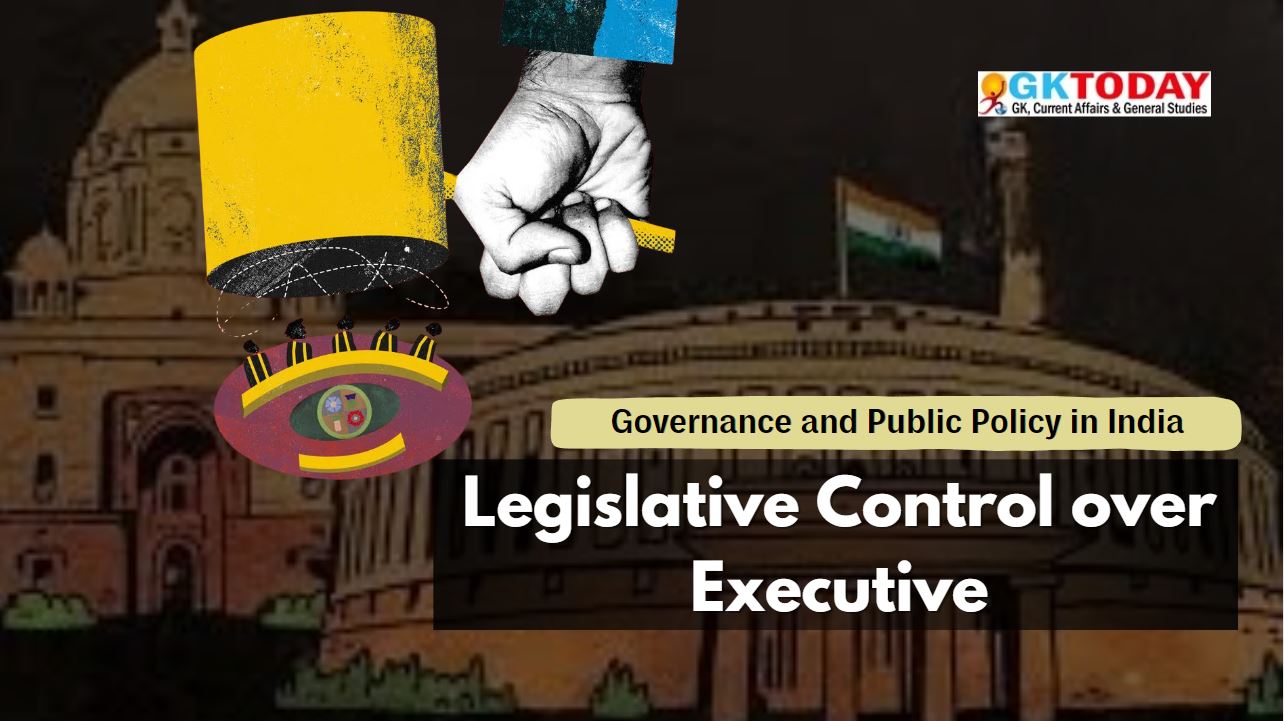Legislative Control over Executive [UGC-NTA NET Political Science]
Legislative control over the executive is a fundamental aspect of governance in India. It ensures that the executive branch remains accountable to the legislature, thereby upholding democratic principles. This control is vital for maintaining transparency and adherence to the rule of law. The mechanisms of legislative control are enshrined in the Constitution and are essential for effective governance.
Definition and Importance
Legislative control refers to the processes and mechanisms through which the legislature supervises the executive branch. Its importance lies in ensuring that the actions of the executive are accountable and transparent. This control is crucial for preventing arbitrary governance and protecting citizens’ rights.
Constitutional Provisions
The Constitution of India provides specific articles that outline the framework for legislative control:
- Article 75: The Prime Minister and the Council of Ministers are collectively responsible to the Lok Sabha.
- Article 85: The President summons and prorogues Parliament, ensuring legislative sessions are conducted.
- Article 110: Money Bills can only be introduced in the Lok Sabha, giving it control over financial matters.
Types of Legislative Control
Legislative control can be categorised into:
- Direct Control: Involves debates, questions, and discussions in Parliament.
- Indirect Control: Conducted through committees and their reports.
Mechanisms of Control
Several mechanisms facilitate legislative control over the executive:
- Question Hour: Members of Parliament (MPs) can question ministers about their work and policies.
- Zero Hour: MPs can raise urgent issues without prior notice, allowing immediate discussion.
- Debates: Parliament debates various issues affecting governance, enabling scrutiny of executive actions.
- Motions:
- No-Confidence Motion: Can lead to the resignation of the Council of Ministers if passed.
- Adjournment Motion: Discusses urgent matters that require immediate attention.
- Committees:
- Standing Committees: Scrutinise government expenditure and policies regularly.
- Select Committees: Examine specific issues in detail, providing in-depth analysis.
Financial Control
The legislature exercises financial control through:
- Budget Approval: Parliament must approve the annual budget, controlling government spending.
- Public Accounts Committee: This committee examines the government’s accounts and ensures accountability.
Legislative Oversight
Legislative oversight is crucial for accountability:
- Reports and Recommendations: Committees submit reports that the executive must address, ensuring responsiveness.
- Parliamentary Questions: Ministers are accountable for their departments through questions raised by MPs.
Impeachment and Removal
Parliament holds the power to impeach certain officials:
- Impeachment of the President: Requires a two-thirds majority in both Houses (Article 61).
- Removal of Judges: Parliament can remove judges through impeachment (Article 124).
Judicial Review
The judiciary plays a role in reinforcing legislative control:
- Judicial Review: The judiciary can review executive actions to ensure compliance with the Constitution.
Legislative Procedures
The legislative process involves:
- Bills and Acts: The introduction, debate, and passing of legislation require participation from both Houses.
- Ordinances: The executive can issue ordinances, but these must be approved by Parliament within six weeks of reassembly.
Challenges to Legislative Control
Several challenges affect legislative control:
- Majority Rule: A strong majority in the legislature can lead to executive dominance, reducing checks and balances.
- Coalition Governments: Compromises may dilute the effectiveness of legislative control.
- Executive Overreach: Instances where the executive bypasses legislative scrutiny undermine accountability.
Recent Developments
Recent trends in governance have raised concerns:
- Increased Use of Ordinances: The executive has relied more on ordinances during emergencies, such as the COVID-19 pandemic.
- Erosion of Parliamentary Authority: There are growing concerns regarding the diminishing role of Parliament in governance.
Significance of Legislative Control
Legislative control is vital for several reasons:
- Maintaining Balance of Power: It ensures a balance between the legislative and executive branches of government.
- Protecting Democratic Principles: By holding the executive accountable, legislative control safeguards democratic values and citizen rights.





